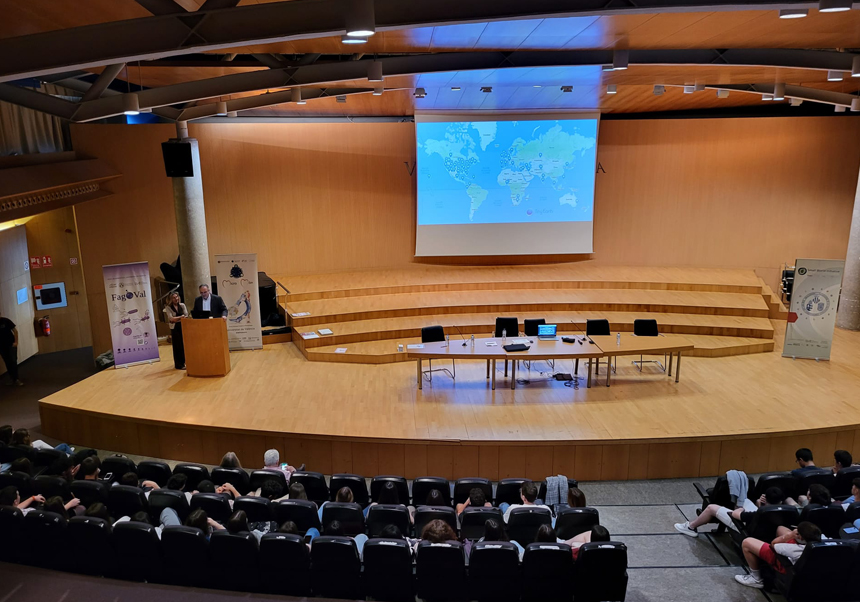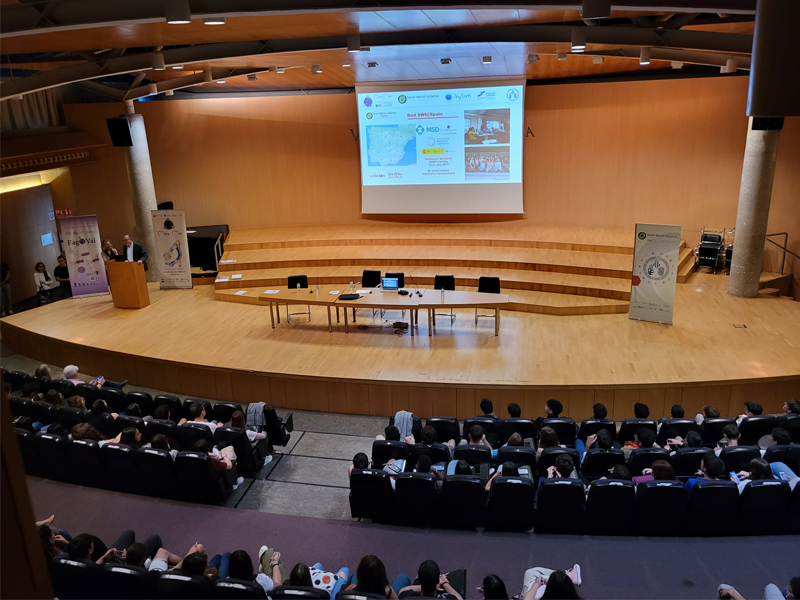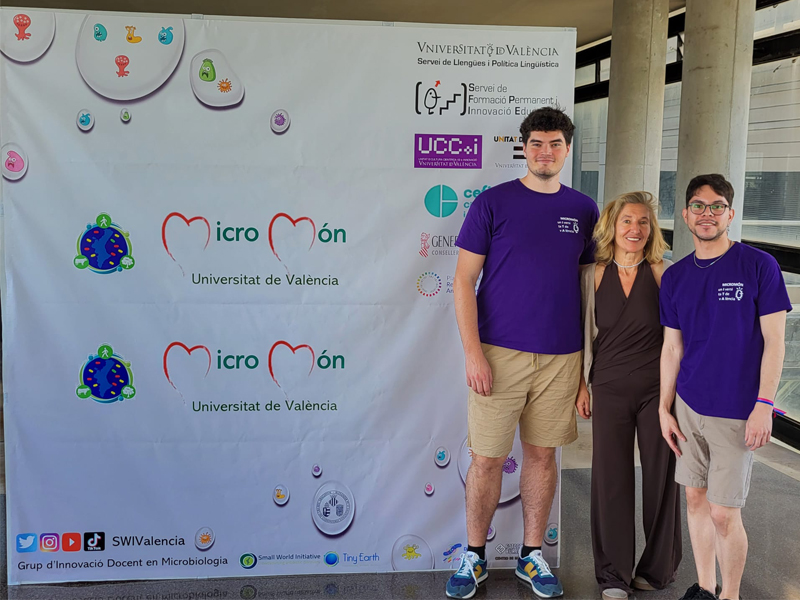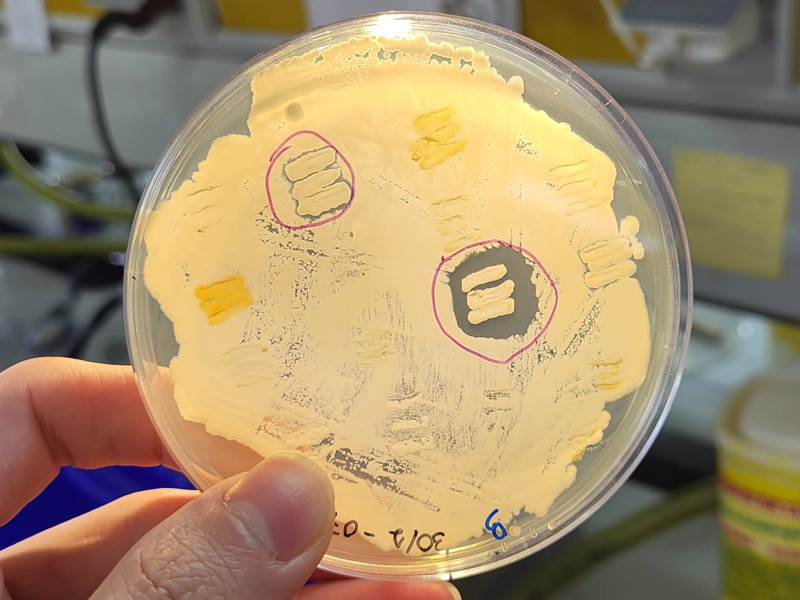
On 4 May, the Micromón València 2023 concluding ceremony was held, in which all the collaborating entities (universities and institutes) participated. The results obtained were presented, as well as the objectives of the next Micromón València.
The Micromón Project
Surely you have heard of words like ''superbugs'' or ''antibiotic resistance'', but you do not have a clear idea of what they mean. Nowadays, these terms have become very important in our society, emerging as problems of great relevance for health worldwide and, having knowledge on the subject, can help to understand the reality and contribute to the development of society through the practice of rational thinking.
The idea of Micromón Valencia stems from a large-scale project called Small World Initiative (SWI) proposed by Yale University (USA) in 2013. This project aims to familiarise pre-university levels with these terms and with the problems that superbugs pose today, as well as to encourage interest in science. Currently, it is not only present in Spain, but has spread to more than 15 different countries, such as Portugal or the United Kingdom.
Why is it important to bring the problem of superbugs and antibiotic resistance to other educational levels? According to the World Health Organisation (WHO), superbugs are defined as infectious microorganisms for which current antibiotics do not work. They warn that they will be the biggest problem facing humanity in the 21st century and, if no significant movement is made to curb them by 2050, they are likely to cause more deaths by then than other diseases such as cancer or diabetes. Pharmaceutical companies are not putting any effort into discovering new antibiotics because it is not in their interest, and existing antibiotics are gradually losing their effectiveness due to the spread of antibiotic resistance. For all these reasons, it is necessary to bring all this knowledge closer to the students.
In order to achieve all of these objectives, Micromón Valencia is proposing a search for new antibiotics, applying a methodology similar to the approach used by Alexander Fleming to discover penicillin, although in a directed and participative way.
Dr. Belén Fouz, associate professor in the research group, is also the coordinator of the Micromón Valencia project (or MIPI, as the organisation calls itself), doing a great job not only in the organisation, but also carrying out the different teaching tasks in the different institutes (and many other tasks).

Members of our group, Moisés Dejesús Bogarín and Pablo Ibáñez Payá, also took part in the 2022/23 edition, attending training classes and some schools as teaching support. For them, the Micromón Valencia experience began as just another course to add to the curriculum and ended up being a good surprise for both of them, not only because of the knowledge learned or the activities carried out in the schools but also because of the good development of the course and the atmosphere that was generated in each activity.

Project development
The search for new antibiotics begins with the collection of soil samples, from which a series of dilutions are made to be cultivated on culture plates. This is where we look for antibiosis phenomena, characterised by a transparent halo around a colony indicating the inhibition of the growth of the surrounding bacteria and, therefore, the discovery of an antibiotic.
Colonies considered relevant and with possible antibiotic activity were selected and tested against other important bacteria in the field of health (one of them being Escherichia coli, which you may be familiar with). This same procedure was explained in a large number of high schools in the provinces of Alicante, Castellón and Valencia, and it was the people from the high schools who were also responsible for carrying out a search on samples from their places of origin.

Closing ceremony
After finishing all the activities included in the project, on 4 May 2023, a closing day was held to bid farewell to the edition and present the Micromón Valencia project for 2023/24. This day was attended by students from the different high schools that participated in the project, turning the Darwin Room into a huge high school classroom where the results obtained during the year were presented, prizes were awarded to the winners of the poster and videos related to Micromón Valencia, and the favourite activity of the room, a quiz with different questions related to the project and general microbiology. During the activity, which was a joint participation of the students, you could hear the noise that was indicative of the enjoyment of the participants.
The activity is strongly recommended, and not to put too fine a point on it, but it was a very enriching experience and one that I am sure anyone who likes microbiology will enjoy. I encourage you to participate in the next edition, or the next one, depending on when you read this.










